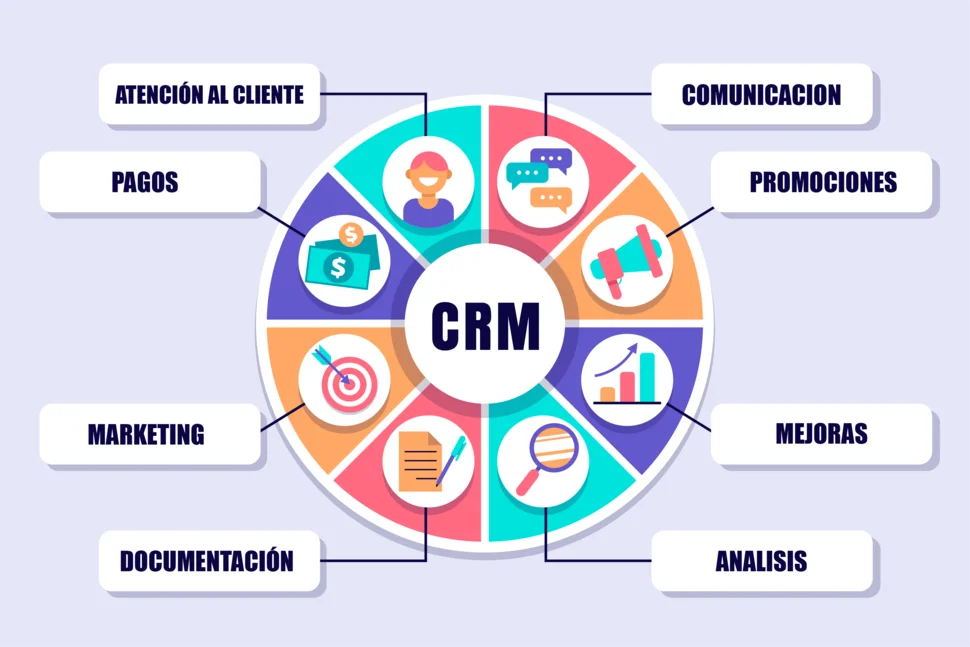The Future of CRM: Trends Every Professional Must Know
Customer Relationship Management (CRM) is at the core of business success, helping companies manage interactions, build relationships, and increase customer retention. As technology continues to evolve, CRM is no longer just about storing customer information—it has become a powerful data-driven tool that enhances customer experience, automates sales processes, and predicts future trends.
With AI-driven automation, predictive analytics, and omnichannel engagement, CRM is transforming how businesses interact with customers. Whether you’re a sales professional, marketing expert, customer service representative, or business leader, staying up to date with CRM trends is crucial for career growth and business success.
In this blog, we explore the top CRM trends shaping the future of customer engagement and business operations.
1. The Rise of AI and Automation in CRM
Artificial Intelligence (AI) and automation are revolutionizing CRM by eliminating manual tasks, improving customer personalization, and predicting buying behaviors.
🔹 How AI is Transforming CRM
✅ Predictive Sales Forecasting – AI analyzes customer data to predict sales trends and recommend the best sales strategies.
✅ AI-Powered Chatbots & Virtual Assistants – Businesses are using AI-driven bots to handle customer queries in real time.
✅ Automated Lead Scoring – AI helps prioritize high-quality leads, ensuring sales teams focus on the best prospects.
💡 Fun Fact: 64% of CRM users say that AI-driven CRM automation has increased their customer engagement rates.
🔹 Example: E-commerce brands use AI-driven CRM tools to offer personalized product recommendations based on customer behavior.
With AI integration, CRM platforms are becoming smarter, faster, and more efficient in driving sales and customer retention.
2. The Shift to Cloud-Based CRM Solutions
Cloud-based CRM software has become the industry standard, offering businesses greater flexibility, cost efficiency, and real-time access to customer data.
🔹 Benefits of Cloud CRM
✅ Access CRM Data Anywhere, Anytime – Sales and support teams can work remotely with real-time access to customer records.
✅ Scalability – Businesses can easily expand CRM capabilities as they grow.
✅ Integration with Other Business Tools – Cloud CRMs integrate with email marketing, social media, and e-commerce platforms.
🔹 Example: Companies using Salesforce, HubSpot, or Zoho CRM benefit from seamless cloud integration, improving customer service response times and sales performance.
With 88% of businesses adopting cloud-based CRM systems, professionals must learn how to leverage cloud CRM for customer engagement, lead tracking, and business analytics.
3. Personalization & Hyper-Targeted Customer Engagement
Customers today expect personalized experiences. CRM platforms are now using big data and AI to deliver hyper-personalized content, offers, and customer interactions.
🔹 How CRM Personalization Works
✅ Behavior-Based Targeting – CRM tools analyze customer actions, preferences, and past interactions to personalize outreach.
✅ Automated Email & SMS Marketing – Businesses send tailored messages based on purchase history, location, and browsing behavior.
✅ Customer Journey Mapping – CRM helps businesses track each customer’s journey, allowing for personalized follow-ups and offers.
🔹 Example: A travel agency uses CRM to send personalized vacation offers based on previous bookings and interests.
🔹 Fact: 80% of customers are more likely to buy from a company that offers a personalized experience.
🔹 Why It Matters: Professionals who understand CRM personalization strategies can improve customer engagement, loyalty, and revenue generation.
4. The Integration of CRM with Social Media & Omnichannel Communication
Today’s customers interact with brands across multiple platforms, including social media, email, live chat, and mobile apps. CRM systems are now integrating with these platforms to provide a seamless customer experience.
🔹 CRM & Social Media Integration Benefits
✅ Real-Time Customer Interaction – Businesses can engage with customers on Facebook, Instagram, Twitter, LinkedIn, and WhatsApp directly from CRM.
✅ Social Listening & Sentiment Analysis – CRM tools track customer feedback, brand mentions, and trends on social platforms.
✅ Improved Lead Generation – Sales teams use social CRM to capture and convert leads from social media interactions.
🔹 Example: A clothing brand integrates its CRM with Instagram to track customer DMs and automatically suggest relevant products.
🔹 Fact: 74% of businesses say social CRM helps them improve customer relationships and brand loyalty.
As omnichannel customer engagement grows, sales and marketing professionals must learn how to use CRM tools to manage customer interactions across multiple channels.
5. CRM & Predictive Analytics: The Power of Data-Driven Decision Making
CRM systems are no longer just for managing contacts—they are advanced data analytics platforms that provide predictive insights into customer behavior.
🔹 How CRM Analytics Boosts Sales & Marketing
✅ Customer Trend Analysis – Businesses use CRM analytics to predict future buying patterns.
✅ Sales Pipeline Forecasting – CRM dashboards help sales teams forecast revenue and plan sales strategies.
✅ Churn Prediction & Prevention – CRM helps identify customers who may leave and suggests retention strategies.
🔹 Example: A subscription-based service uses CRM analytics to detect which customers are at risk of canceling and offers personalized retention discounts.
🔹 Fact: Businesses that use predictive CRM analytics increase their sales by 27% on average.
Understanding CRM analytics is becoming essential for professionals in sales, marketing, and customer support.
6. Voice & Conversational CRM: The Next Big Thing
As voice technology advances, voice-assisted CRM tools are gaining popularity. Voice-driven interactions help businesses streamline customer support and improve response times.
🔹 The Role of Voice Technology in CRM
✅ Voice Search & AI Assistants – CRM platforms integrate with Alexa, Siri, and Google Assistant for voice-based data retrieval.
✅ Speech-to-Text CRM Updates – Sales professionals can log calls and update CRM records using voice commands.
✅ Automated Customer Calls & Follow-Ups – AI-powered voice bots assist in customer engagement and appointment scheduling.
🔹 Example: A real estate company uses voice-enabled CRM to log customer inquiries and set reminders for follow-ups.
🔹 Fact: By 2026, 50% of all business searches and CRM interactions are expected to be voice-driven.
Professionals who adapt to voice-enabled CRM tools will gain a competitive advantage in customer service and sales automation.
Conclusion: The Future of CRM is Now
As CRM technology continues to evolve, professionals who stay ahead of trends and master CRM tools will thrive in customer-focused roles.
Key Takeaways:
✅ AI & automation are making CRM more intelligent and efficient.
✅ Cloud-based CRM provides real-time data access and flexibility.
✅ Hyper-personalization is essential for improving customer engagement.
✅ Social CRM & omnichannel communication are redefining how businesses interact with customers.
✅ Predictive analytics is shaping data-driven decision-making in CRM.
✅ Voice-enabled CRM is the next big thing in customer relationship management.
💡 Are you ready for the future of CRM? Start exploring how these trends can enhance your business or career today!


